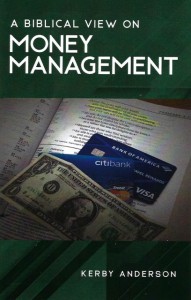Kerby Anderson provides an overview of transhumanism and AI, considering its impact on us and our families.
Over the last few years, we have heard more pundits and futurists talk about transhumanism. What is this philosophy? How will it affect our families and us? How should a Christian think about transhumanism?
Transhumanism is an intellectual and cultural movement that seeks to transform the human condition. The leaders of this movement want to use the developing technologies to eliminate aging and enhance human potential (physical, psychological, and mental).
Nick Bostrom explains that transhumanism views human nature as a “work-in-progress, a half-baked beginning that we can learn to remold in desirable ways.” He goes on to explain the transhumanist vision: “Transhumanists hope that by responsible use of science, technology, and other rational means we shall eventually manage to become posthumans, beings with vastly greater capacities than present human beings have.”{1}
Two primary ways they want to do this is through genetic engineering and artificial intelligence. They want to genetically create “the new man,” and they want to use technology to merge humans with machines.
The genetic part of this equation claims that we can use gene splicing and other genetic modification techniques so that genes can be easily transferred between species. But we should be concerned about geneticists who want to create a superhuman race. Leon Kass warned that “Engineering the engineer seems to differ in kind from engineering the engine.”{2}
The other part of the equation concerns technology. The leaders of transhumanism believe we are on the cusp of a technological threshold in both artificial intelligence and human-machine technology.
The “humanism” in transhumanism reminds us that this is a philosophy rooted in Enlightenment humanism. But it is different. Whereas the goal of humanism was to develop the ideal human, the goal of transhumanism is to transcend what we have traditionally considered human.
The Transhumanist Declaration provides eight key points to describe what the signers believe should be the future of humans.{3} It begins with this claim: “Humanity stands to be profoundly affected by science and technology in the future. We envision the possibility of broadening human potential by overcoming aging, cognitive shortcomings, involuntary suffering, and our confinement to planet Earth.”
Two Principles of Transhumanism
Now I would like to look at the two foundational principles of transhumanism.
The first principle is “metaman.” Futurists predict that our current human condition will evolve into being a cyborg (short for cybernetic organism). Our bodies will be joined to machines as we “evolve” through technological progress.
Transhumanists believe we will have immense knowledge and information because of the rapid advances in artificial intelligence and computing power. These advances will eventually exceed human intelligence. Meanwhile, advances in genetic engineering will allow scientists to modify the human body to keep pace with these technological advances.
This is the two-fold hope of the transhumanists: artificial intelligence and genetic engineering. One represents biological change through mixing and matching genes. The other presents the merging of human intelligence with artificial intelligence.
In fact, the hope is to create a superorganism through the transference of genes between species. This may even eradicate the differences between species. One scientist even suggested that tampering with the genetic codes of all plants and animals on this planet would cause the “definition of human beings to drift.”{4} Humans would merge with the rest of nature, thereby creating a planetary superorganism he calls “Metaman.”
In essence, transhumanists would like to erase any distinction between human, other forms in nature, and machines. Humans would now control the future direction of evolution and merge all forms of life and non-life together in one enormous superorganism.
The second principle is “the singularity.” Transhumanists wait for the arrival of a technological threshold that will be achieved through artificial intelligence. Futurists predict that sometime in the middle of this century, we will achieve what transhumanists call “the singularity.”{5} The current distinction between humanity and nature and machine will fade and there will no longer be any barriers between the natural world and artificial world.
This utopian view assumes that humans will be able to transcend the limitations of our biological bodies and brains. There will no longer be any distinction between humans and machines. And this, say the transhumanists, will allow humanity to no longer be resigned to death as the end. All of this, they predict, will usher in a technological millennium.
History of Artificial Intelligence
The term artificial intelligence was coined in 1956 by the American computer scientist John McCarthy. He defines it as “getting a computer to do things which, when done by people, are said to involve intelligence.” Unfortunately, there is no standard definition of what constitutes AI. Part of the problem is the lack of agreement on what constitutes intelligence and how it relates to machines.
McCarthy proposes that “Intelligence is the computational part of the ability to achieve goals in the world. Varying kinds and degrees of intelligence occur in people, many animals, and some machines.”{6} This would include such capabilities as logic, reasoning, conceptualization, self-awareness, learning, emotional knowledge, planning, creativity, abstract thinking, and problem solving.
Researchers have for decades hoped to build machines that could do anything the human brain could do. Progress was slow for many decades but has accelerated in the last few years. A significant breakthrough occurred in 2012, when an idea called the neural network shifted the entire field. This is a mathematical system that learns skills by finding statistical patterns in enormous amounts of data.
The next big step came around 2018 with large language models. Companies such as Google, Microsoft, and OpenAI began building neural networks trained on vast amounts of text including digital books, academic papers, and Wikipedia articles. Surprisingly, these systems learned to write unique prose and computer code and to carry on sophisticated conversations. This breakthrough has been called “generative AI.”
These AI algorithms are based on intricate webs of neural networks and allow for what is considered “deep learning.” These advanced AI systems collect huge amounts of data and can correct mistakes and even anticipate future problems.
The benefits are significant. Factory automation, self-driving cars, efficient use of resources, correlating massive amounts of data, and fewer errors in medical diagnoses are just a few of the many ways in which AI will improve our lives in the 21st century.
Unfortunately, AI poses dangers to us.
Dangers of Artificial Intelligence
Although artificial intelligence offers some significant benefits, it also poses many dangers. The authors of the open letter on AI warn that human beings are not ready for a powerful AI under present conditions or even in the foreseeable future. What happens after AI becomes smarter than humans? That is a question that bothered Eliezer Yudkowsky. In his opinion piece for Time magazine, he argued that “We Need to Shut It All Down.”{7}
He warned that “Many researchers steeped in these issues, including myself, expect that the most likely result of building a superhumanly smart AI, under anything remotely like the current circumstances, is that literally everyone on Earth will die.” He doesn’t think this is merely a possibility but believes it is a virtual certainty.
He uses this illustration to drive home his point: “To visualize a hostile superhuman AI, don’t imagine a lifeless book-smart thinker dwelling inside the internet and sending ill-intentioned emails. Visualize an entire alien civilization, thinking at millions of times human speeds, initially confined to computers—in a world of creatures that are, from its perspective, very stupid and very slow.”
Bill Gates understands both the benefits and dangers of AI. He explains that the “development of AI is as fundamental as the creation of the microprocessor, the personal computer, the Internet, and the mobile phone.” While these changes in how we work, learn, and communicate are good, there is also “the possibility that AIs will run out of control.”{8}
He asks, “Could a machine decide that humans are a threat, conclude that its interests are different from ours, or simply stop caring about us?” He recognizes that “superintelligent AIs are in our future” and that they “will be able to do everything that a human brain can, but without any practical limits on the size of its memory or the speed at which it operates.” However, these “strong AIs” will “probably be able to establish their own goals.” Those would likely conflict with our best interests.
Notice the number of dystopian movies where the machines have taken over. That would include movies like 2001: A Space Odyssey, Avengers: Age of Ultron, I, Robot, the Matrix series, and the Terminator series. That is why many people fear how AI will be used in the future.
Biblical Perspective
How should Christians respond to transhumanism? We should begin by looking at the philosophical foundation of this movement. It begins with a belief that there is no God and we are responsible for our own destiny. It also is based upon an evolutionary foundation that assumes that we are the product of millions of years of chance process.
The leaders of transhumanism see genetic engineering as a tool to be used to speed up the process of evolution. We can use genetics to enhance and improve the human race. If we believe that humans are merely the product of the undirected force of evolution, then certainly intelligent scientists can “improve on nature.”
The evolutionary argument goes like this. Humans die due to some technological glitch (e.g., heart stops beating). Therefore, “Every technical problem has a technical solution. We don’t need to wait for the Second Coming in which to overcome death. A couple of geeks in a lab can do it. If traditionally death was the specialty of priests and theologians, now the engineers are taking over.”{9}
The leaders of transhumanism believe we should use technology to improve the human race so that we are perfect and immortal. In many ways, this technological imperative harkens back to the Tower of Babel (Genesis 11). Instead, we should use technology wisely as we exercise dominion over the world (Genesis 1:28).
Here are a few biblical principles. First, we begin with the reality that each human being in created in God’s image (Genesis 1:26-27, Psalm 139:13-16, Isaiah 43:6-7, Jeremiah 1:5, Ephesians 4:24). We have been given dominion and stewardship over the creation (Genesis 1:28, Colossians 1:16) and should reject any form of technology that would usurp or subvert that stewardship responsibility.
Second, humans are created as moral agents. Computer technology can aid us in making moral decisions because of its powerful ability to process data. But we can never cede our moral responsibility to those same computers. God will hold us responsible for the moral or immoral decisions we make (Roman 2:6-8, Galatians 5:19-21, 2 Peter 1:5-8). We should never give computers that authority.
We should reject the vision of transhumanism that looks forward to the day in which man and machine become one in the singularity. We must reject the idea that this is the next step in human evolution. We should reject the worship of technology and reject the idea that AI will make us more human. And we should reject the false utopian vision of a world when machines are given co-equal value to humans created in the image of God (Genesis 1:26-27).
Notes
1. Nick Bostrom, “Transhumanist Values,” Ethical Issues for the Twenty-First Century (2005): 3-14.
2. Kass, Leon. “The New Biology: What Price Relieving Man’s Estate?” Science, 19 November 1971, 779.
3. Transhumanism Declaration, www.humanityplus.org/the-transhumanist-declaration.
4. Gregory Stock, Metaman: The Merging of Humans and Machines Into a Global Superorganism, NY: Simon and Schuster, 165.
5. Ray Kurtzweil, The Singularity Is Near, NY: Penguin, 2005.
6. John McCarthy, “What is AI/Basic Questions,” jmc.stanford.edu/artificial-intelligence/what-is-ai/index.html
7. Eliezer Yudkowsky, “Pausing AI Developments Isn’t Enough. We Need to Shut it All Down,” Time, March 29, 2023.
8. Bill Gates, “The Age of AI has Begun,” March 21, 2023, www.gatesnotes.com/The-Age-of-AI-Has-Begun.
9. Yuval Noah Harari, Homo Deus: A Brief History of Tomorrow, London: Penguin, 2016, 23.
For Further Reading
Kerby Anderson, Christian Ethics in Plain Language, Nashville, TN: Thomas Nelson, 2005, chapter 20.
Kerby Anderson, Technology and Social Trends Cambridge, OH: Christian Publishers, 2016, chapter 3.
Jacob Shatzer, Transhumanism and the Image of God Downers Grove, IL: IVP Press, 2019.
Lawrence Terlizzese, Into the Void: The Coming Transhuman Transformation, Cambridge, OH: Christian Publishers, 2016.
©2024 Probe Ministries


 It is always important for us to get out of debt. I have written another booklet on the subject of debt. If you are in debt or want to learn more about government debt and personal debt, I encourage you to obtain that booklet. Email me your name and address at
It is always important for us to get out of debt. I have written another booklet on the subject of debt. If you are in debt or want to learn more about government debt and personal debt, I encourage you to obtain that booklet. Email me your name and address at  Abigail Shrier wrote about the transgender craze in her book Irreversible Damage: The Transgender Craze Seducing Our Daughters. When she joined me on my Point of View radio program, she explained that “gender dysphoria” was characterized by severe and persistent discomfort in one’s biological sex. It typically begins in early childhood. In previous generations, it afflicted a sliver of the population (roughly .01 percent) and occurred mostly in boys.
Abigail Shrier wrote about the transgender craze in her book Irreversible Damage: The Transgender Craze Seducing Our Daughters. When she joined me on my Point of View radio program, she explained that “gender dysphoria” was characterized by severe and persistent discomfort in one’s biological sex. It typically begins in early childhood. In previous generations, it afflicted a sliver of the population (roughly .01 percent) and occurred mostly in boys. Ryan Anderson is the author of the book, When Harry Became Sally: Responding to the Transgender Moment. He explains how transgender ideology promotes the opportunity for children to change their gender with surgery and drugs. And parents “are told that puberty blockers and cross-sex hormones may be the only way to prevent their children from committing suicide.”
Ryan Anderson is the author of the book, When Harry Became Sally: Responding to the Transgender Moment. He explains how transgender ideology promotes the opportunity for children to change their gender with surgery and drugs. And parents “are told that puberty blockers and cross-sex hormones may be the only way to prevent their children from committing suicide.”